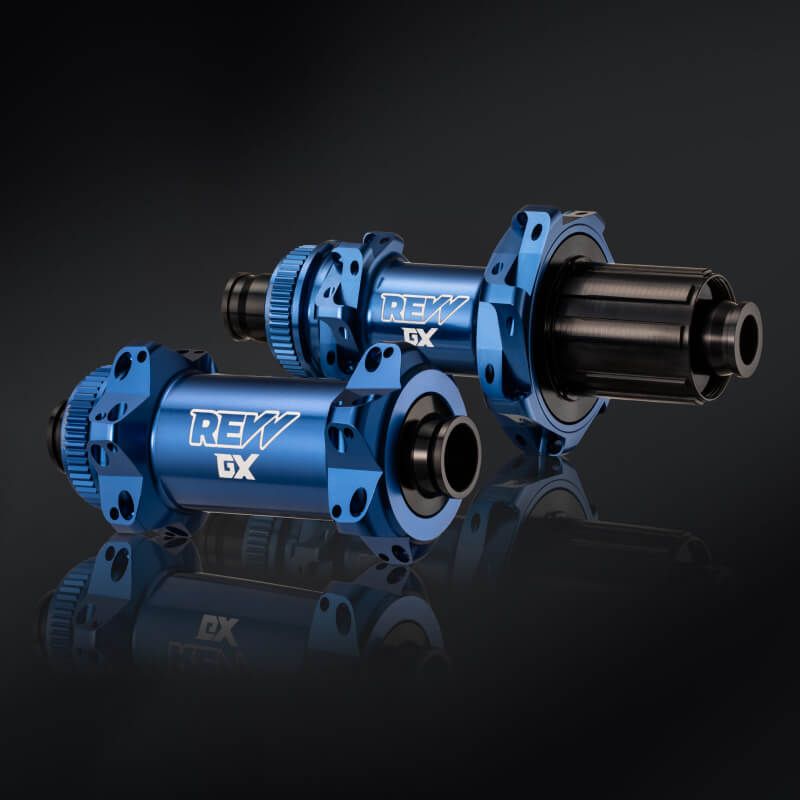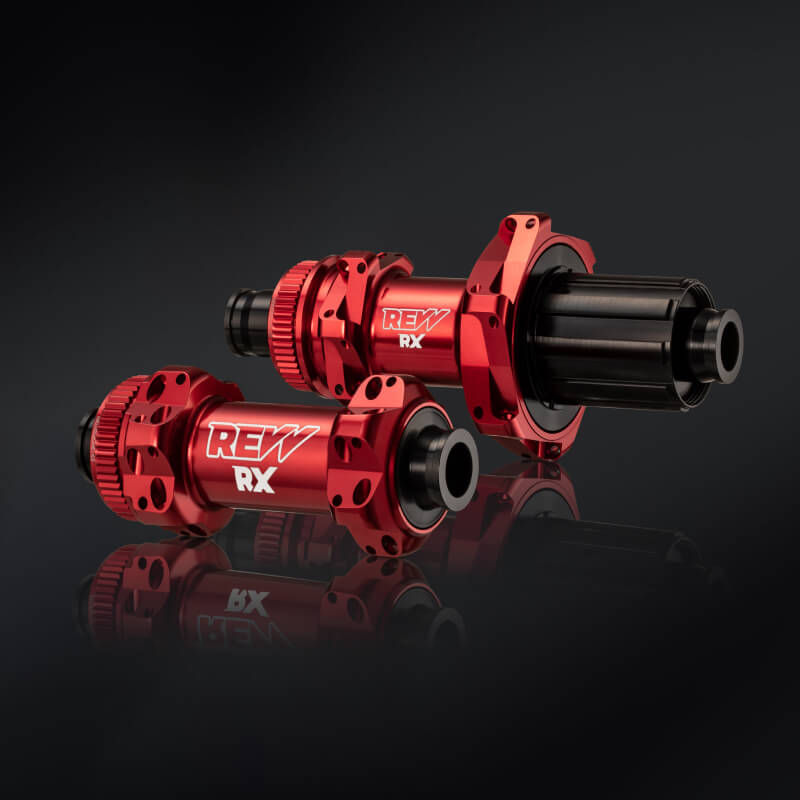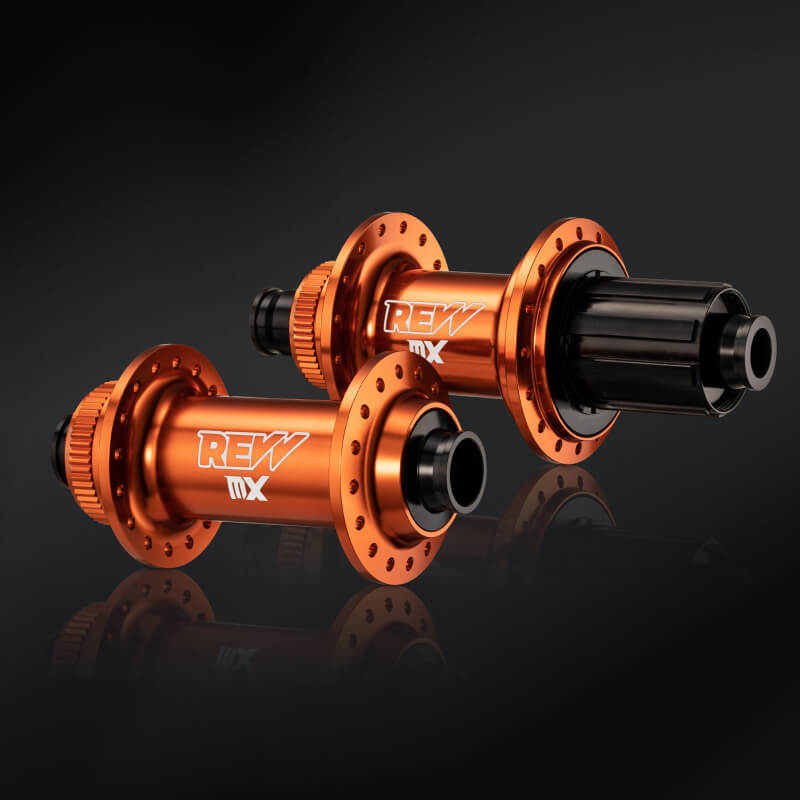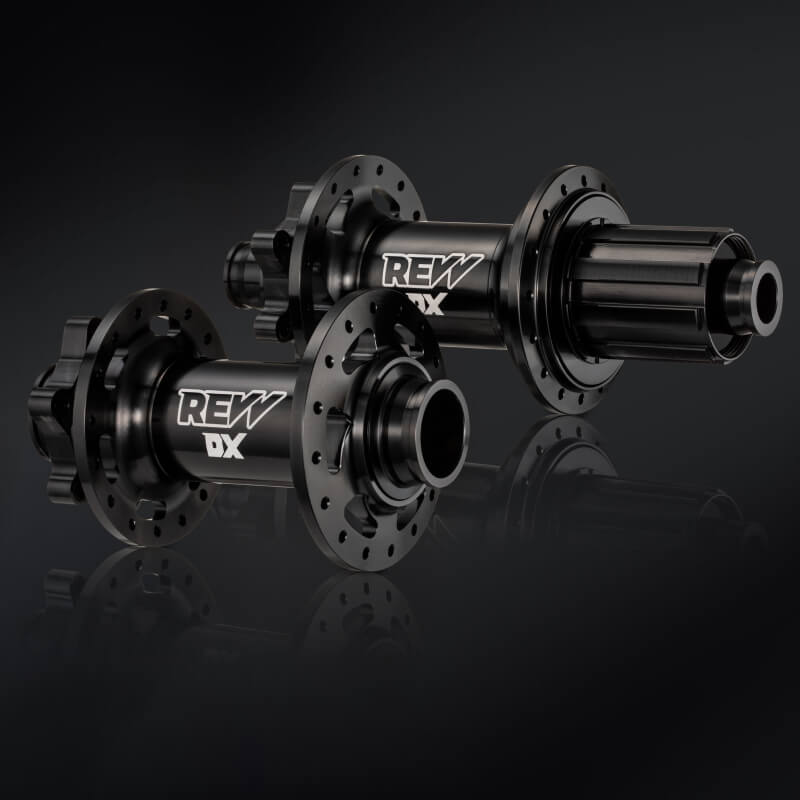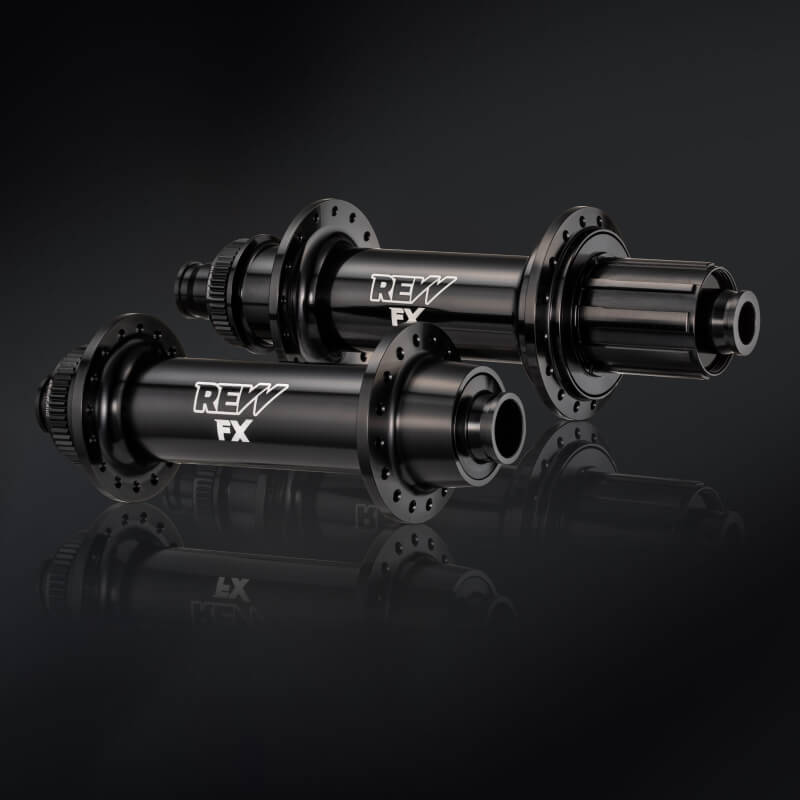High end mountain bike hubs are very durable and last a long time, making them a cost effective alternative to less rugged, cheaper, options, but how do we judge a ‘high end’ MTB hub? Mountain bike hub material and manufacturing choices have a bigger impact on performance than you might think.
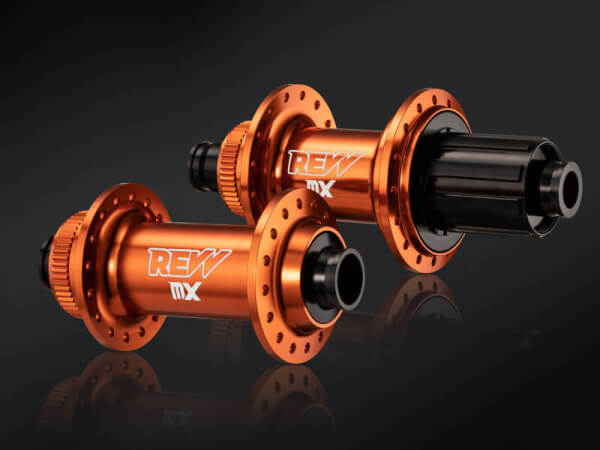
Excellent MTB hub design balances durability, and performance
Aluminum has become the dominant material in modern mountain bike hub manufacturing for durability and performance. Carbon fiber is increasingly popular for frames, forks and wheels for weight reduction, but this is not an issue with hub design, where smooth reliable operation and durability are much more important.
What are the three essential features of bicycle hubs?
- Effective power transfer
- Smooth engagement and operation
- Durable, reliable construction
When we look at the issues of designing an optimum bike hub, it’s important to keep in mind the purpose of the hub. For bike frames, aluminum can be as strong as steel with reduced weight, and carbon offers some further weight advantages over aluminum, but MTB hub designs are dominated by aluminum for very good reasons.
What does a mountain bike hub need to do?
It’s worth going back to basics when working out the best mountain bike hub design. Front and rear hubs on a mountain bike need to perform different functions, because only the rear wheel is driven by the crank, chain, and gears. Front hubs can be very simple because they work under balanced loads when the bike is being ridden.
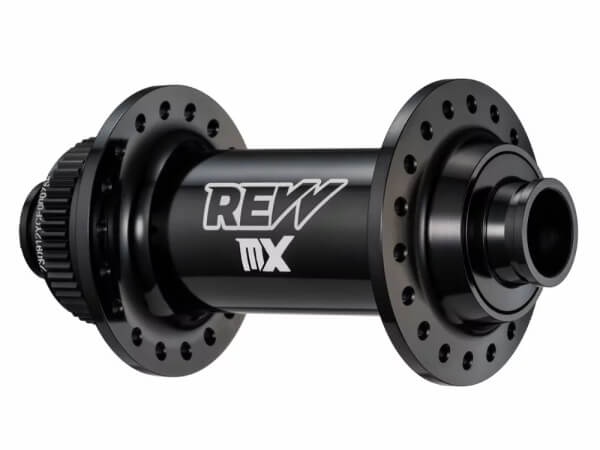
Front hubs have a simple set of requirements:
- Hold the wheel together
- Spin freely
- Securely attach to brake rotor
Rear hubs are much more challenging to design, because they need to transmit torque to the rear wheel from the cranks while pedaling, and they also need to freewheel when not pedaling, so you can coast without having to keep spinning the pedals.
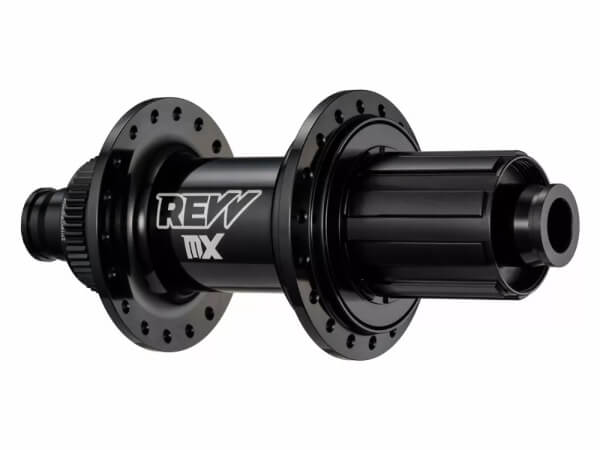
This adds three additional requirements to the design of rear hubs:
- Secure cassette mounting
- Freehub body
- Ratchet mechanism
When we look at the basics of what a mountain bike hub needs to do for us, unlike the rest of the bike, weight reduction is not an important consideration. The reason for this is that bike hubs are a comparatively small, light component in the total design of any bike, and regardless of the hub material they need steel bearings to function.
Ceramic bearings are available for mountain bike hubs, but at insane prices and for questionable performance gains. The pairing of aluminum hubs with steel bearing components gives the best balance of functional performance to cost and durability.
How do you decide the best mountain bike hub material for your needs?
There is so much choice in bike hub design and manufacturing, it’s difficult to make a good decision. For some applications, steel hubs are still an excellent choice. Modern manufacturing and design, however, have now made aluminum hubs the reliable starting point for high quality, light weight, road, gravel, downhill, fat bike and mountain bike hubs.
The weight advantages of using carbon fiber shells are minimal compared to the added cost, and for the high loads experienced by bike hubs, any defects in design of manufacturing can cause catastrophic failure in ‘budget’ carbon fiber hub designs. This means we really need to look at aluminum as the optimum material for high end bike hub manufacturing.
Having settled on aluminum as the best material for MTB hubs, we find there are a lot of competing brands and types of hub on the market, and it can be difficult to choose between them at first sight. That’s why we need to dig deeper into the design features of mountain bike hubs to make a well informed decision.
How do you choose the right aluminum MTB hub?
All aluminum bike hubs are not made equally well. Something that is not immediately obvious when shopping around for a bike hub is how the manufacturing process and quality control have an enormous impact on the performance and durability of a bike hub. You should always look for a forged aluminum bike hub if you want the highest quality.
Forged aluminum components are widely used in the aerospace industry to ensure structural strength and reliability in critical engine and mechanical components, and when you’re riding your bike you need the same level of confidence in your mountain bike hubs!
Precision CNC machined aluminum forgings give you extreme strength and durability for a highly cost-effective, durable, lightweight hub for your performance biking needs. This is why at Revv we only make hubs using forged aluminum, finished by CNC machining and extensively tested and monitored to achieve the highest standards of quality control.

